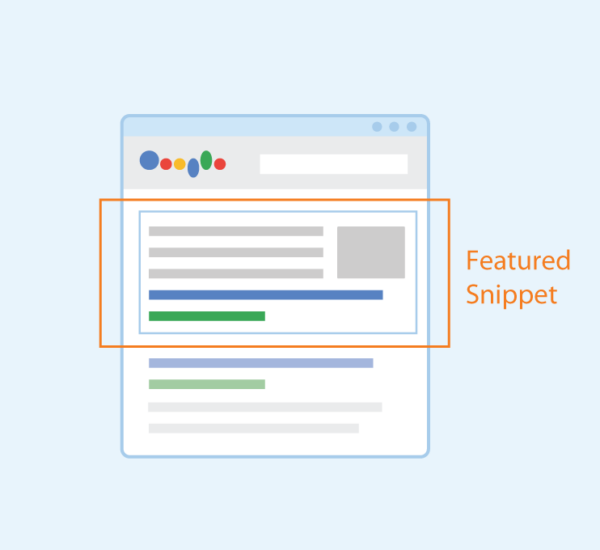Have you ever wondered why your website isn’t ranking well on Google? You’ve put in all the effort to create valuable content, optimise your keywords, and build quality backlinks, but something still seems off. Well, the culprit might just be hiding in your code. Sloppy coding can have a significant impact on your Google rankings, and in this article, we’ll explore why and how it can hurt your website’s visibility on the search engine giant.
The Importance of Clean Code
Before diving into the specifics of how sloppy coding affects your Google rankings, let’s first understand the significance of clean code. Clean code refers to well-organised, readable, and maintainable programming code that follows best practices. It is the foundation upon which your website is built, and just like a solid foundation is vital for a building’s stability, clean code is essential for a website’s performance and success.
How Sloppy Coding Affects SEO
Slow Loading Speed: Sloppy coding often leads to bloated and inefficient code, resulting in slower loading times. Google values user experience, and if your website takes forever to load, it will be penalised in the search rankings.
Poor Mobile Optimisation: With the increasing number of mobile users, Google prioritises mobile-friendly websites. Sloppy coding can hinder proper responsive design, making your website look terrible on mobile devices and ultimately affecting your rankings.
Difficulty in Crawling: Search engine bots crawl your website to understand its content and rank it accordingly. Sloppy coding can make it difficult for these bots to navigate your site, resulting in incomplete indexing and poor visibility on Google.
Broken Links and Inconsistent URLs: Sloppy coding often leads to broken links and inconsistent URLs, which frustrates users and search engines alike. Google considers broken links a negative ranking factor, as they indicate a lack of maintenance and poor user experience.
Inefficient Use of Heading Tags: Heading tags (H1, H2, etc.) play a crucial role in organising content and signalling its importance to search engines. Sloppy coding can result in improper use of heading tags, confusing search engines about the structure and relevance of your content.
Duplicate Content Issues: Sloppy coding can inadvertently create duplicate content issues on your website. This occurs when multiple URLs lead to the same content, causing confusion for search engines and diluting the ranking potential of your pages.
Inaccessible Content for Screen Readers: Sloppy coding can result in accessibility issues, making it difficult for screen readers to interpret your website’s content. Google considers accessibility an important ranking factor, and neglecting it can harm your rankings.
Lack of Schema Markup: Schema markup is a powerful tool that helps search engines understand the context and meaning of your content. Sloppy coding often neglects or improperly implements schema markup, missing out on the opportunity to enhance your search visibility.
Inefficient Image Optimisation: Sloppy coding can hinder proper image optimisation, resulting in large file sizes and slow loading times. Additionally, missing or incorrect Alt tags can make it difficult for search engines to understand the context of your images.
Security Vulnerabilities: Sloppy coding practices can leave your website vulnerable to hacking and security breaches. Google takes website security seriously and may penalise sites that are deemed unsafe.
How to Avoid Sloppy Coding
Now that we’ve seen the negative impact of sloppy coding on your Google rankings, let’s explore some tips to avoid falling into this trap:
Follow Coding Best Practices: Stay updated with the latest coding standards and best practices to ensure clean and efficient code.
Use CSS and JavaScript Minification: Minify your CSS and JavaScript files to reduce file sizes and improve loading speed.
Optimise Images: Compress and optimise images to reduce file sizes without compromising quality. Use descriptive Alt tags to provide context to search engines.
Implement Responsive Design: Ensure your website is mobile-friendly and responsive across different devices and screen sizes.
Regularly Check for Broken Links: Use tools to scan your website for broken links and fix them promptly.
Implement Proper Heading Tags: Use heading tags properly to structure your content and signal its importance to search engines.
Implement Schema Markup: Take advantage of schema markup to provide additional context to search engines and enhance your visibility.
Ensure Accessibility: Follow accessibility guidelines to make your website accessible to all users, including those with disabilities.
Regularly Update and Maintain Your Website: Keep your website up to date with the latest security patches and regularly maintain it to avoid vulnerabilities.
Test Your Website: Regularly test your website’s performance and usability to identify and fix any issues promptly.
Conclusion
Sloppy coding can have a detrimental impact on your Google rankings. From slow loading times to broken links and inefficient use of heading tags, it affects various aspects of your website’s performance and user experience. By following coding best practices, optimising your website for mobile, and regularly maintaining it, you can avoid the pitfalls of sloppy coding and improve your chances of ranking higher on Google.
FAQs
1. Can sloppy coding affect my website’s rankings on other search engines besides Google?
Yes, sloppy coding can affect your rankings on other search engines as well. However, Google’s algorithms are particularly sophisticated and place a strong emphasis on user experience, making it crucial to address any coding issues.
2. How can I check if my website has sloppy coding?
You can use various online tools and validators to analyse your website’s code and identify any sloppy coding practices. These tools can highlight issues such as inefficient code, broken links, and accessibility problems.
3. Is it possible to fix sloppy coding without redesigning my entire website?
Yes, it is possible to fix sloppy coding without a complete redesign. By following best practices and implementing targeted optimisations, you can gradually improve your code’s quality and enhance your website’s performance.
4. How often should I update and maintain my website’s code?
Regular updates and maintenance are essential to keep your website running smoothly and efficiently. Aim to review and update your code at least once every few months, and address any issues promptly.
5. Can I hire a professional to clean up my website’s code?
Yes, you can hire a professional web developer or coding expert to clean up your website’s code. They can identify and fix any coding issues, optimise your website for better performance, and ensure it adheres to best practices.




